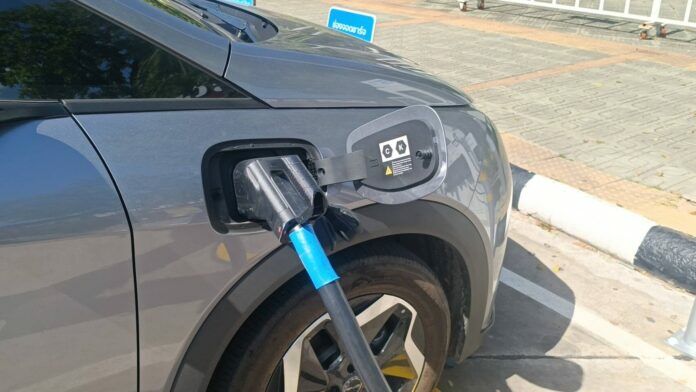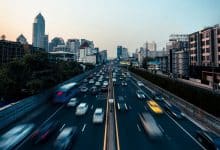Thai EV drivers demand more charging stations for smoother travel

Electric vehicle (EV) owners are voicing concerns over a lack of charging stations, as they scramble to charge their vehicles before embarking on the Korat-Bang Pa-in Motorway. The public is calling on the government to seriously support the increasing use of EVs.
As people steadily return to Bangkok and central and eastern provinces, those driving EVs must plan their journeys around the relatively few charging stations in the regions, most of which are located at specific petrol stations.
The PTT petrol station on the Korat Bypass is one of the few that offers charging services for EVs, with a capacity to charge two vehicles at a time. This station is the last on Highway 204, the Korat Bypass, which is the main route from the upper northeast to the M6 Bang Pa-In – Nakhon Ratchasima Motorway, Highway 2, Mittraphap Road, and Highway 304, Nakhon Ratchasima-Kabin Buri.
Both charging ports are constantly occupied, with a queue of cars waiting to recharge. There is a brief respite of around 10-15 minutes, but if a reserved queue is not met within five minutes, the slot is immediately forfeited to the next in line.
Weerawat Homklin, the Sales Manager at the Intercontinental Hotel in Khao Yai, Korat, stated that the high costs of installing charging stations are a significant issue for EV users in different provinces. As the government’s policy encourages people to switch to EVs to reduce pollution, they must support the private sector or the Provincial Electricity Authority (PEA) to increase the number of charging stations to meet the growing demand for electric vehicles.
An employee from a company in Bangkok, who travelled from Suwannaphum District, Roi Et Province, highlighted the need for more charging stations. Having switched to an electric vehicle this year, he noted the clear savings in costs but emphasised the need for careful planning due to the shortage of charging stations.
Most stations he encountered were 25 kilowatts, which was insufficient. He suggested that there should be at least 50 kilowatts and ideally 120 kilowatts, which would be a more suitable and efficient size for those who are travelling long distances during the holiday season.
Latest Thailand News
Follow The Thaiger on Google News:


























